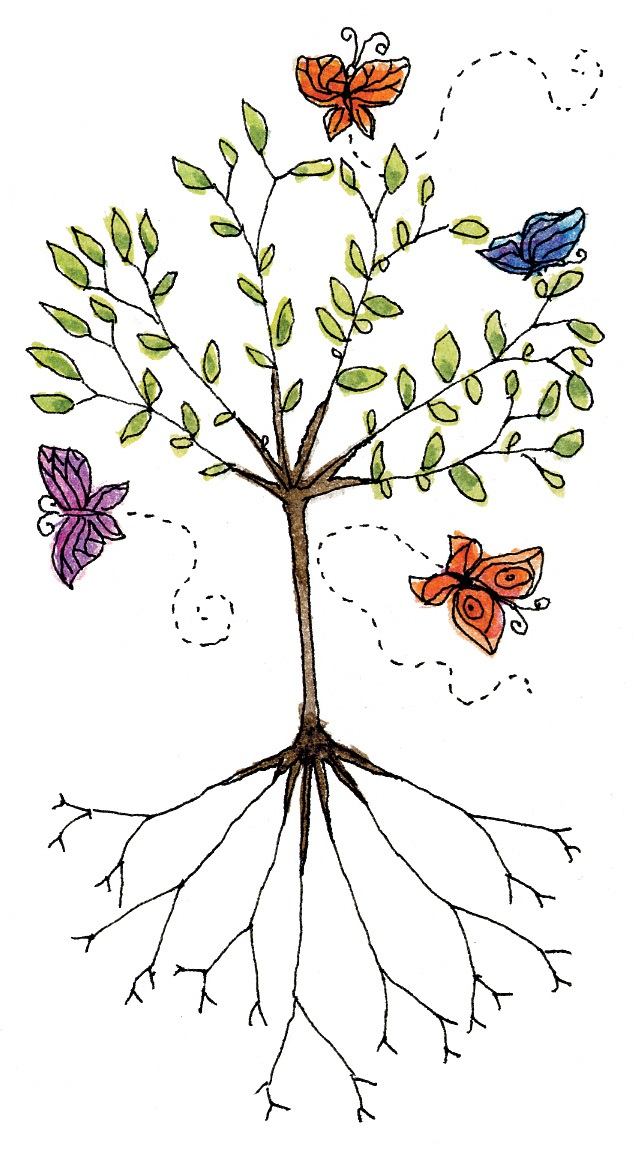Six years ago, I stood in a registrar’s office in central China, holding a sweaty infant in my arms. Today that baby has grown into a sturdy, happy girl, who’s about to enter second grade. Though I still marvel at the fact that Eleni, now almost 7, can read, write, and negotiate her way through a large New York City public school, I’m even more impressed that my daughter can make friends with just about anyone. Unlike me, her friendly-but-reticent single mom (and primary role model), Eleni is a social butterfly.
Of course, that’s not to say that my daughter doesn’t have her favorite pals, the ones with whom she bickers and makes up incessantly. They’re the girls who’ve known her since preschool or kindergarten, and who are familiar with and accept her family story, which is vastly different from theirs. In their mind, it goes something like this: Eleni lives with a mommy, not a daddy. If we ask her where her daddy lives, she says he lives in China. And that’s that. She doesn’t like to talk about him much, but occasionally she misses him. She gets mad if you ask her what’s wrong—so watch out! Most of the time, though, Eleni’s pretty happy and fun, and that’s why we like her.
One night, not long ago, I asked Eleni what she looked for in a friend. She immediately said she chooses kids who are nice to play with. But after a moment, she added: “I like friends I can trust. When I say, ‘Can I be your friend?’ They say, ‘Yes,’ and then they don’t do anything bad or mean.” Fortunately, Eleni’s experience with things bad or mean has so far been limited. In her world, the biggest infractions involve picking another partner after you promised to walk with a friend, or revealing a solemn secret you swore to keep (So-and-so “still likes Elmo, even though he’s for babies”).
[Instant Download: How to Raise Adopted Children]
But my daughter also holds some things so private and dear, they’re a mystery even to me. For instance, Eleni told me recently—after much prodding—that she doesn’t tell anyone she’s adopted. It’s a secret. (Why this sudden secrecy? Who knows? Just last summer, Eleni would run up to kids on the playground and say, “My name used to be Du Xue Jing—like doo-doo,” then laugh.) When she walks through Chinatown, she feels she’s somehow related to the families she sees. When she met another little Asian girl in kindergarten, she felt as if she’d known her forever and considered Jackie a good friend, even though they rarely played together.
As my daughter enters second grade, I wonder how her friendships will change. Last summer, she cried when two of her best friends sat together on a camp bus and excluded her. As the school year wore on, she rejoiced when birthday party invitations rolled in. She befriended a little boy whose grandmother, like hers, hailed from Greece. She lost a grandfather and grew up a bit, learning that real friendships involve caring, trust, and compromise.
It’s hard to know what’s next for Eleni as her school and social lives take unprecedented turns. But like any mother, I want my daughter to feel safe, loved, secure in herself and her identity, and open to sharing every part of her story—the good, the bad, and the scary. With each day that passes, I do my best to give Eleni roots, of the strong and stable kind, and wings that allow her to fly lightly through the school day and happily back home at night.



